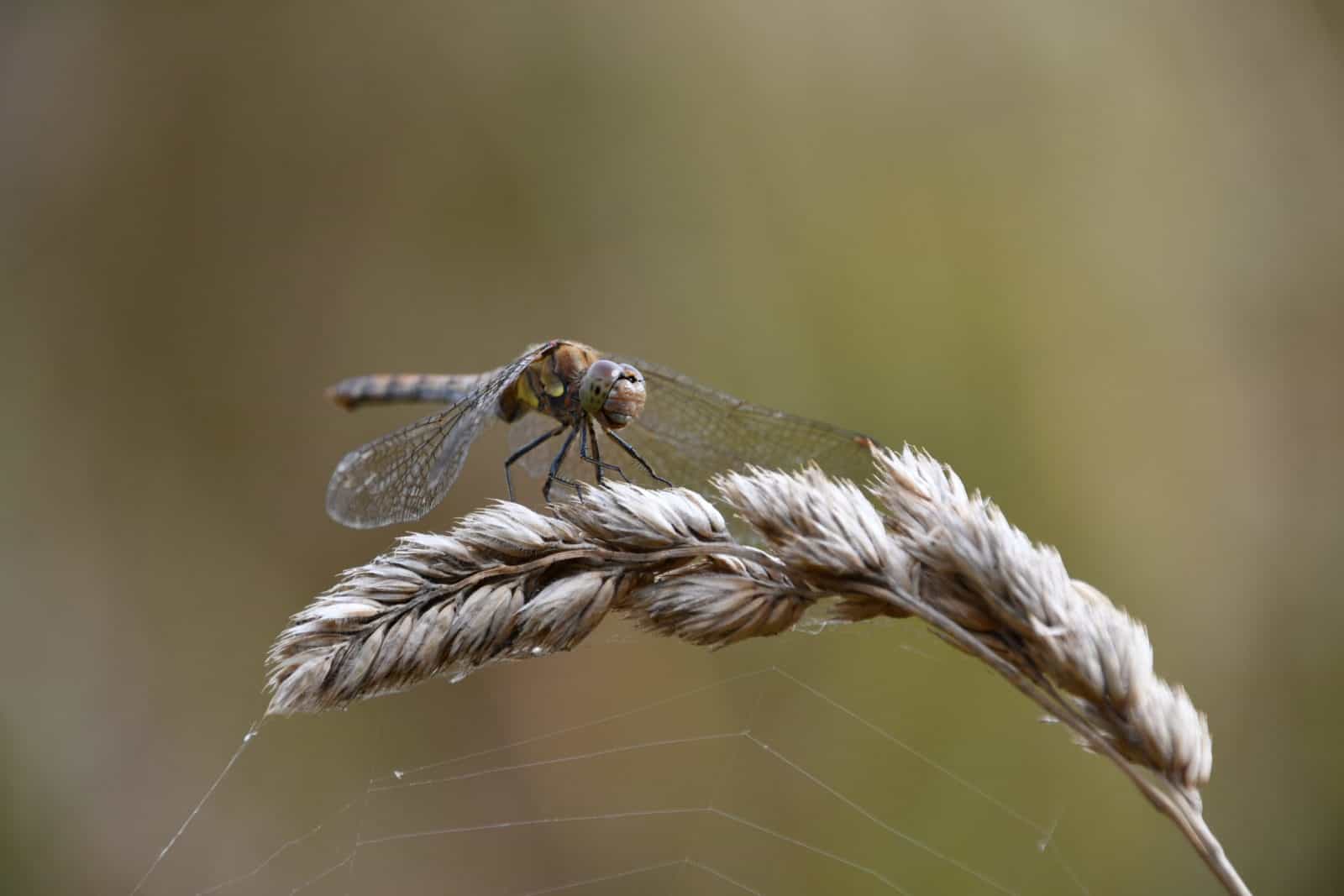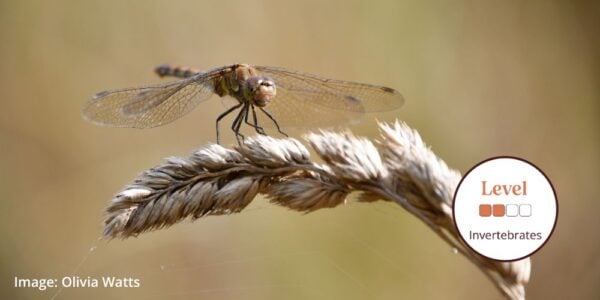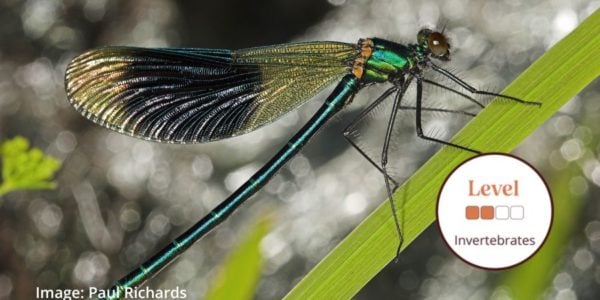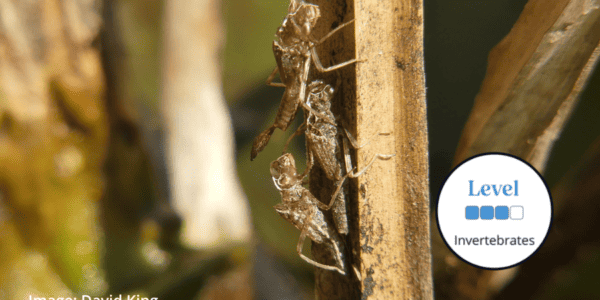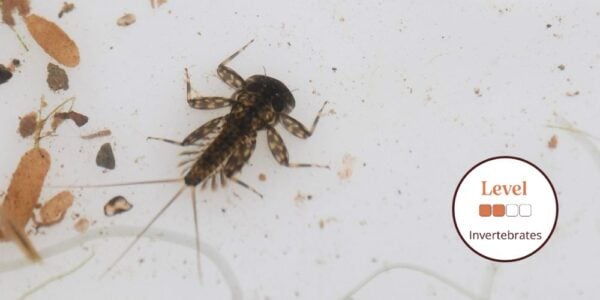This beginner course on dragonflies and damselflies is aimed at all those with a desire to learn more about identifying these stunning insects. Open to all levels of ability, we aim to introduce you to a number of dragonflies and damselflies close-up so that you will be confident in your abilities to identify them and make species records.
This course will include:
- An introduction to dragonflies and damselflies and understanding the differences between them.
- Classroom workshops on the identification of both dragonflies and damselflies.
- Hands-on practice (weather permitting) netting and identifying dragonflies in the field.
- An explanation of how to take your interest further and actively contribute to the conservation of dragonflies and damselflies by making biological records.
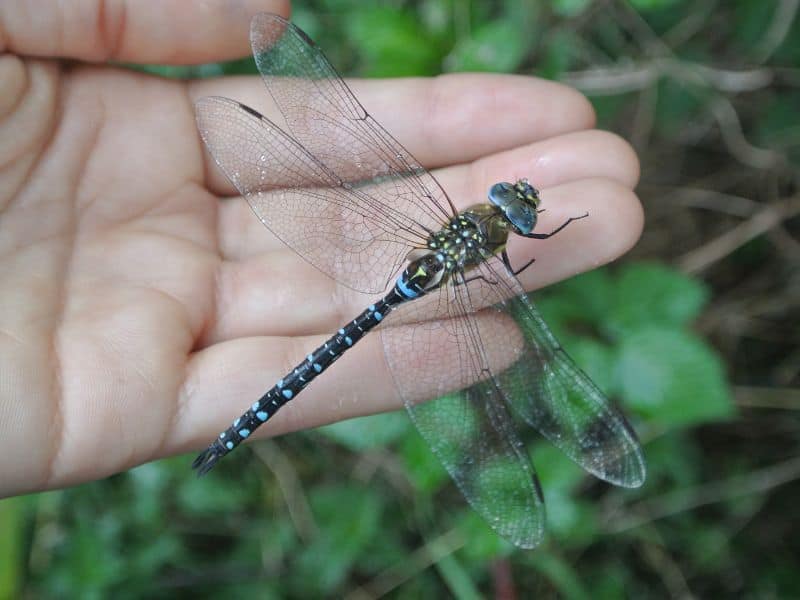
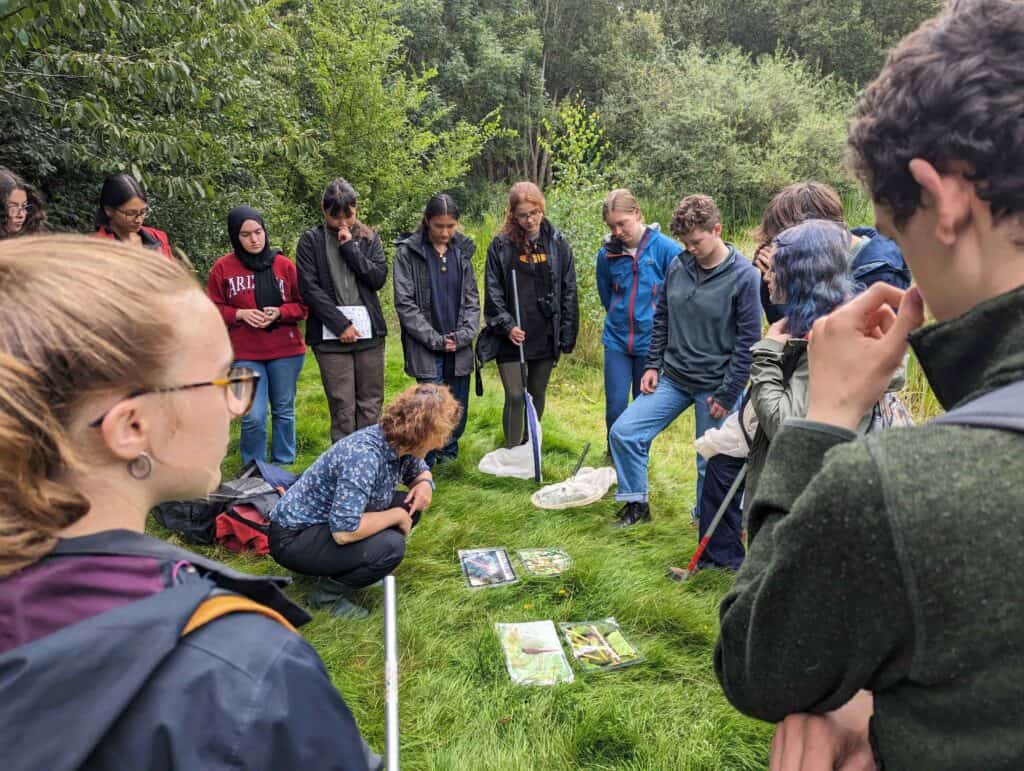

Read More
This course provides an introduction to the identification of dragonflies and damselflies via classroom workshop sessions, an excursion to a number of Shropshire dragonfly sites, and walks around water bodies at the field centre.
By the end of the course, you will be able to:
- Recognise the difference between dragon and damselflies.
- Know the terminology used to describe dragon and damselfly diagnostic features.
- Identify a good number of species.
- Know how to safely net and handle dragon and damselflies.
- Have an overview of species found in Shropshire and how to adapt this species list to participants home area.
- Know what a biological record is and how to make biological records of dragon and damselflies (NB. This is not a detailed input on iRecord).
Who Should Attend? – Nature enthusiasts, students, rangers, early career consultants and ecologists. Anyone wishing to know more about the identification of dragonflies and damselflies.
Knowledge Level – Beginner. Level descriptors can be found on the following web-page: Framework and Course Level Descriptors.
Prior Knowledge – No existing knowledge or experience is needed for this course, just a willingness to explore and learn.
PLEASE NOTE: There is no accommodation or meal facilities provided with this course. Refreshments (tea and coffee) will be available. If we are unable to reach viable numbers for this course, we will inform you of the course cancellation 4-5 weeks prior to the course run. We would recommend when purchasing accommodation and/or travel you should take out your own insurance.
Bookings will close if course capacity is reached.
Please email [email protected] if you have any questions.
About the Tutor
Sue Rees Evans
Sue Rees Evans is the Shropshire County recorder for Dragonflies and Damselflies and the Odonata Tsar for the Shropshire Ecological Data Network. Sue has also written and manages the Shropshire Dragonflies website which serves as an online atlas and hosts the Shropshire Dragonfly Watch flight season blog. With a real enthusiasm for hands on teaching, Sue has taught numerous courses on Dragonfly and Damselfly identification for over ten years for organisations including the Field Studies Council.
Example Timetable
Example Timetable
Saturday
10:00 - Classroom session introducing dragonflies and damselflies and the differences between them. Then a focus on damselfly identification via an interactive workshop.
12.00 – Minibus to a number of Shropshire sites to practice netting, handling and identification of damselflies and dragonflies in the field.
16:00 -17:00 – Return to field centre to consolidate species observed and diagnostic characteristics.
Sunday
10:00 - Classroom session - focus on dragonfly identification via interactive workshop.
12.00 – Exploring the ponds and River Severn at the Preston Montford Field Centre. Observing behaviour and further practice of netting, handling and identification of damselflies and dragonflies in the field.
16:00 - 17:00 – Return to the classroom to discuss how to take your interest further and contribute biological records.
Exact timings within the day are flexible and will be adapted to make the best use of the weather we are given! It is likely that packed lunch will be eaten in the field on both days and timing will depend on the forecast. In the unlikely event the weather is extremely wet field excursions will be replaced by a session on the life cycle of dragonflies and damselflies and possibly the identification of exuviae.
Lunch is not included so please bring your own food. Refreshments (tea and coffee) will be provided at the centre.
What's Included
The course has been carefully created by expert tutors and educators to help you build your knowledge and apply it within the field surrounded by like-minded individuals.
The course includes:
- Classroom learning covering the theory of the topic
- Field excursions to apply new knowledge
- Expert tuition for which the Field Studies Council is renowned
- Clear objectives and progression
- Refreshments (tea/coffee)
You can rest assured that the absolute best content from an expert in environmental education will be provided. In choosing a Field Studies Council course, you will be joining thousands of people who learn with us each year.
Bursaries and Subsidies
Student Discount
This course is eligible for a student discount. If you are a current student, please use discount code BioStudent20 at checkout for 20% off all Biodiversity courses.
Natural History Bursaries
There are a number of natural history bursaries available to help with the cost of your course. To find out if you and your chosen course are eligible, read more here.
Before You Attend
What to Bring
- Notebook and pencil
- Lunch and refreshments
- Sensible footwear and clothing for being outdoors
- Small bag to carry personal items
Recommended Literature
When you book this course, you will receive a discount code for the Field Studies Council recommended guide below:
For those who wish, the latest ‘Field Guide to the damselflies and dragonflies of Britain and Ireland’ by D. Smallshire & A. Swash will be available for purchase during the course at £17.95 (correct cash/cheque only please)
There will be a member of staff with first aid training and access to a first aid kit on site. If you have special medical or access requirements, please let us know as soon as possible so we can plan the course.
Opportunities to attend this course
No current dates for this course? Click here to view all the upcoming Natural History courses.
Progress Your Learning
This is a training course from the Field Studies Council, delivered by expert tutors with an approachable learning style. After attending this course, you may like to progress your learning with further relevant courses or branch out into other areas of natural history. The Field Studies Council offers both online and in-person courses, so you can choose the learning style that suits you best.
The course gives you the opportunity to immerse yourself in a new subject and acquire novel skills. Our online portal gives you time to study at your own pace and fit the lessons around your own schedule.
If you have any questions about our courses, please check out our Frequently Asked Questions or email [email protected].
Group Bookings Made Easy
If you have a group of 10 or more individuals wanting to complete one of our courses, our team are available to discuss your options – from discounts to private team courses. Find out more!
You can rest assured that the absolute best content from an expert in environmental education will be at your fingertips. In choosing a Field Studies Council course, you will be joining thousands of people who learn with us each year.

